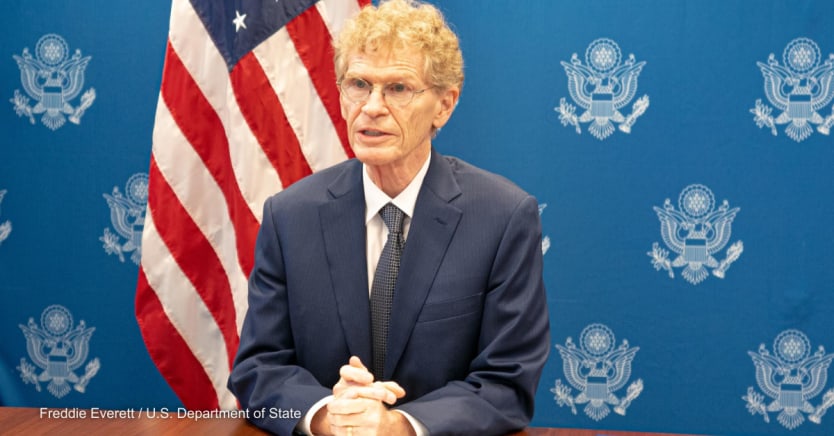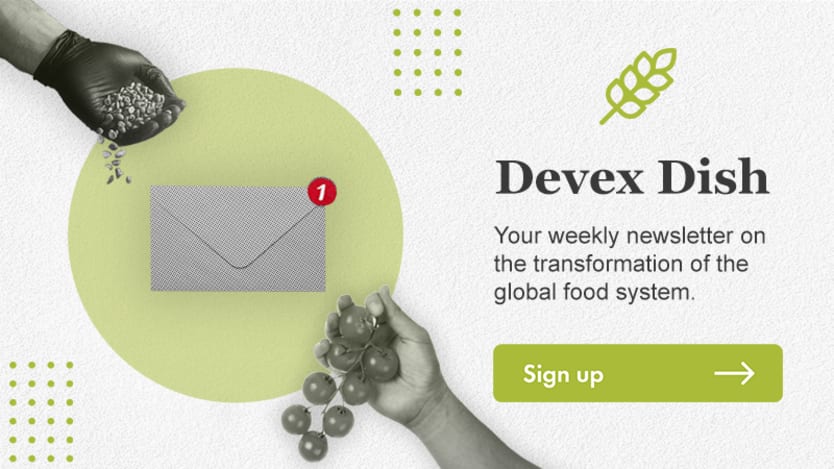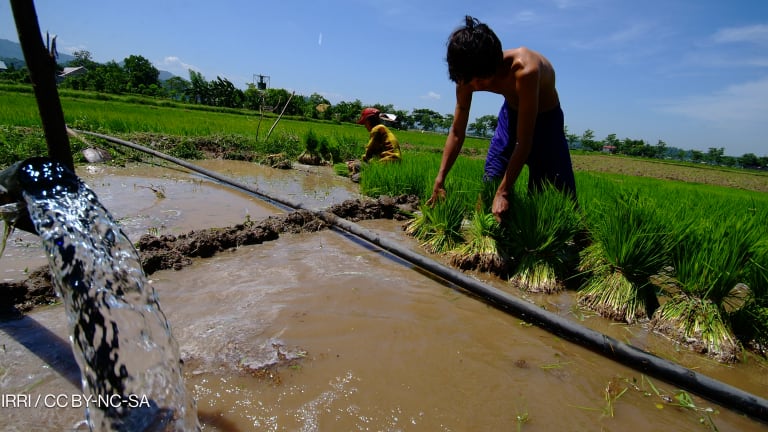
Climate change is the largest threat to ensuring the world has enough food to eat, U.S. Special Envoy for Global Food Security Cary Fowler told the audience at the 2022 World Food Prize Borlaug dialogue on Tuesday.
“I cannot personally shake the belief that on the … list of the top 10 most important challenges that we face in regards to food security, that climate is one through five,” Fowler said.
The dire effects climate change is having on agriculture and world food security are a central theme at the annual event in Des Moines, Iowa, which is honoring scientist Cynthia Rosenzweig of the Goddard Institute for Space Studies with the “food security Nobel Prize.” She is being recognized for her work in studying the links between climate change and food security.
Often food security studies disregard the impacts of climate change in their projections, Fowler said, making the numbers essentially useless. He said that data showing the world will produce 50% more food by 2050 won’t come true and the assumption that crop production will “magically continue a historic upward trend” has “outlived its usefulness.”
“In some areas of Africa by 2050 with climate change … we won’t be producing 50% more food, we’ll be producing 10% less. And that’s a big variance,” Fowler said. “Let’s not make assumptions about future food production, let's look at what the needs are going to be in the future and plan backwards from that. And let’s put programs and investments in places that we really need to ensure we can produce enough food to feed everyone.”
He said that while the State Department is not an implementing agency, he wants to use his position as food security envoy to catalyze progress to help adapt crops to climate change. This involves a long-term view on food security, he said, alongside the immediate humanitarian response.
“Orphan crops,” meaning those not traded internationally — even ones as commonly eaten as sweet potatoes — lack major research funding for climate adaptive varieties, endangering the potential positive role they could play in future food security, he said.
Too often research funding is dedicated to adapting major crops such as maize and soy at the expense of fruits, vegetables, roots, tubers, and grains such as millet and teff.
“How is it that crops evolve? They’re domesticated. … Their future is literally in our hands. Their adaptation is in our hands. They adapt by formal plant breeding, and/or by farmers making selections based on diversity. Or they don’t adapt at all,” Fowler said.
“What we should be doing is to identify the crops that are or could be most important for nutrition. We should be assessing how climate change will affect them and then with this foundation we should be ramping up to help those crops … to cope with the climate change that’s on our doorstep right now.”
Of particular concern to Fowler are African leafy greens, which don’t capture the attention of plant breeders working on climate resilient varieties.
“Are we assuming that those crops magically are going to be adapted to climates that have never before existed in the history of agriculture simply because we want them to and we need them to? That to me is a dangerous assumption,” Fowler said.
For the first time, the official 27th United Nations Climate Change Conference, which is taking place next month, will include a dedicated day to agriculture. This upgraded place of food security on the global climate agenda must be taken advantage of, Fowler said.
“Frankly if our agricultural systems don’t adapt to climate change, if our crops don’t adapt to climate change … then neither will we,” Fowler said.









